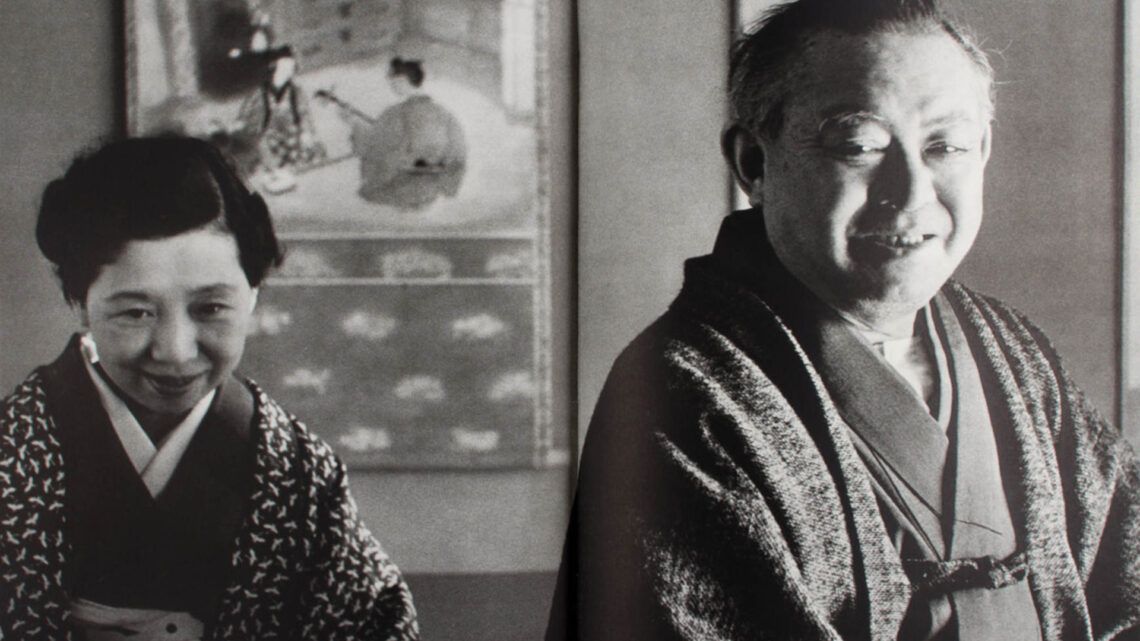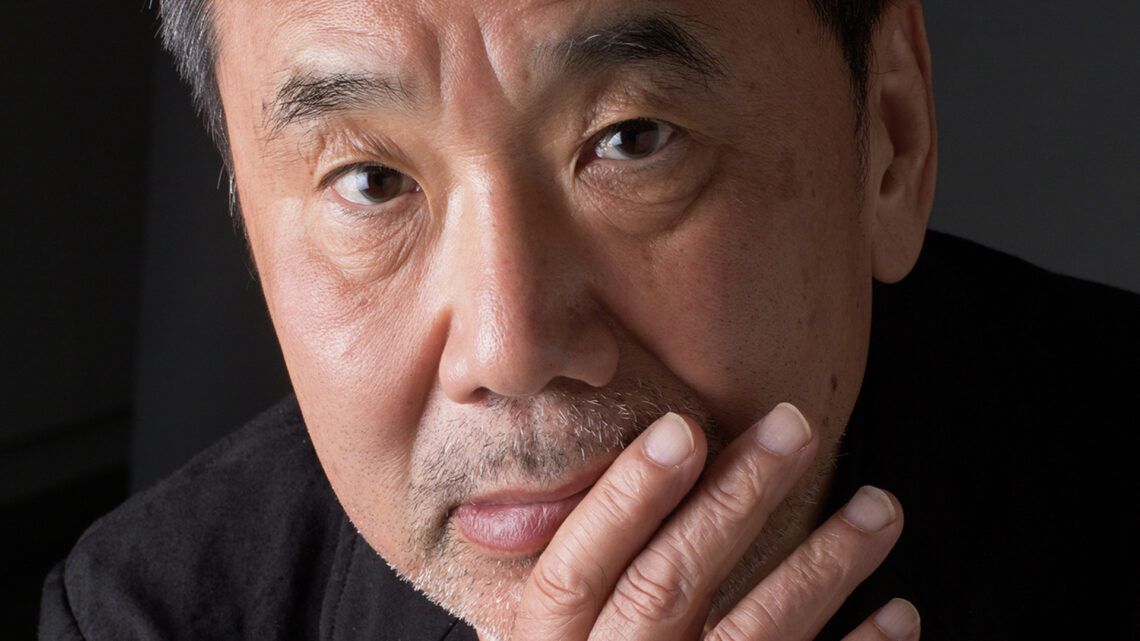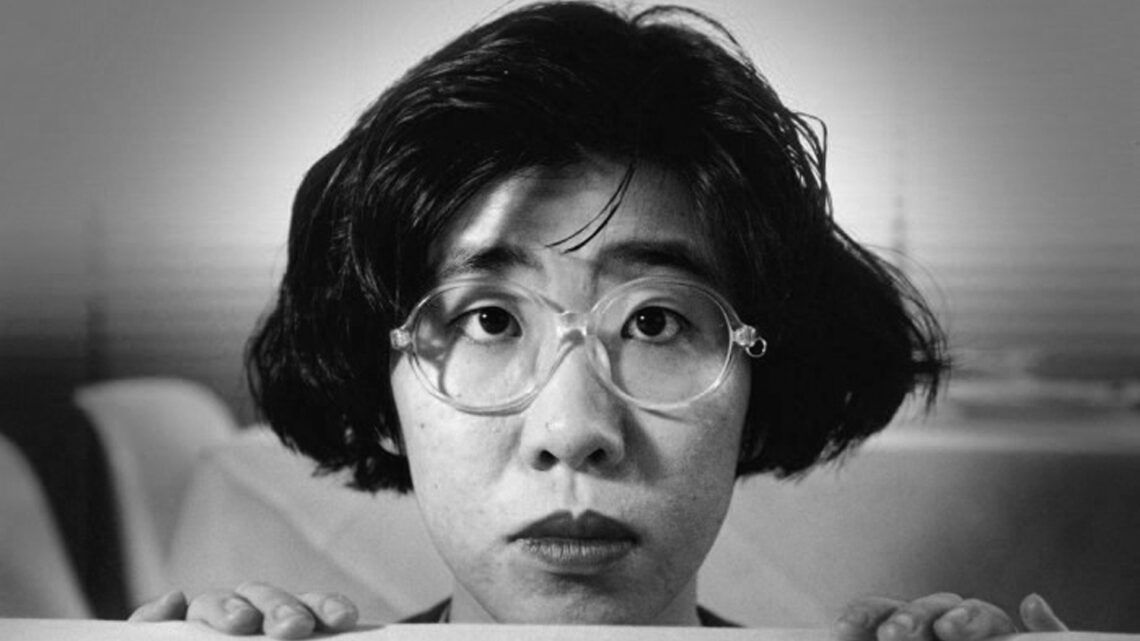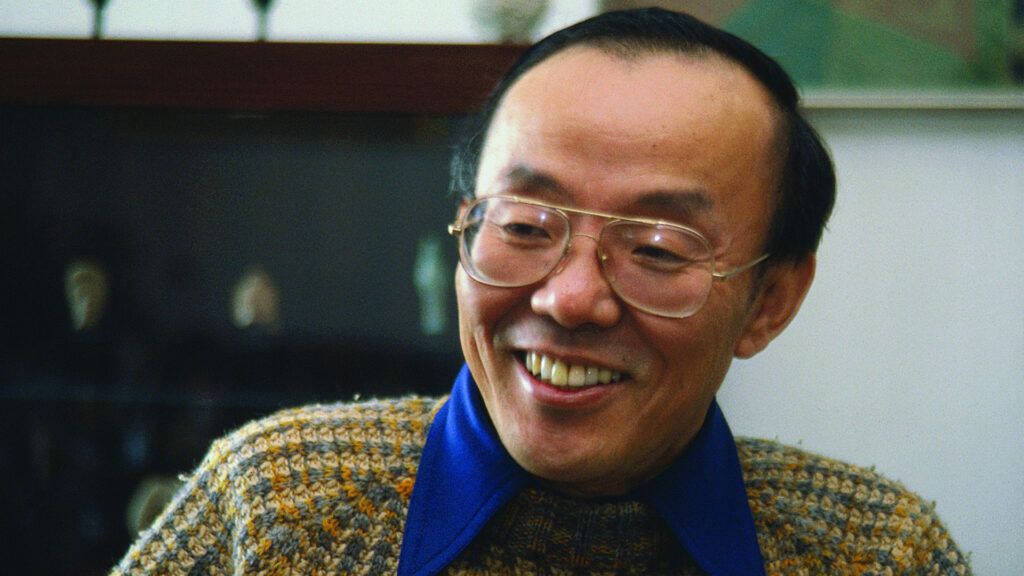
Shusaku Endo, born on March 27, 1923, in Tokyo, Japan, was a significant Japanese writer of the 20th century. His life and work bear witness to a profound engagement with existential questions, religious themes, and the tension between different cultures. Endo is considered one of the foremost representatives of modern Japanese literature and has gained international recognition for his novels and essays.
Endo’s works are characterized by his own experience as a member of a religious minority in Japan. As a Catholic in a predominantly Shinto and Buddhist influenced country, he was constantly challenged to reconcile his faith with Japanese culture and society. This central theme permeates his entire body of work, lending his writings a special depth and authenticity.
Shusaku Endo achieved literary breakthrough in the 1950s with his novel “Silence” (chinmoku), published in 1966. The work portrays Portuguese Jesuit missionaries in the 17th century traveling to Japan to spread Christianity. However, the protagonists are confronted with cruel persecution, forcing them to choose between renouncing their faith or facing martyrdom. “Silence” is a profoundly moving work that compellingly addresses the conflicts between faith and doubt, obedience and resistance.
Endo masterfully depicts the inner turmoil of his characters, prompting readers to contemplate universal questions of guilt, forgiveness, and human existence. His writing style is characterized by clear, poignant language and a deep empathy for his characters.
In addition to “Silence,” Endo wrote numerous other novels, including “Deep River” (1978), “The Samurai” (1980), and “The Sea and Poison” (1993). In these works, he explores various aspects of Japanese history, culture, and society, often offering critical insights into the role of religion in the modern world.
Another important aspect of Endo’s work is his exploration of colonization and the encounter between East and West. In many of his novels, he portrays this encounter as fraught with misunderstandings, prejudices, and conflicts, but also as offering the possibility of mutual understanding and reconciliation.
Endo was an extremely prolific author, writing not only novels but also essays, short stories, and plays. His body of work comprises more than two dozen books and has been translated into numerous languages. Despite his international fame, Endo remained true to his Japanese roots, continuously engaging with the specific challenges and issues of his homeland.
In addition to his writing career, Endo was also involved in teaching and served as a professor of literature at various universities. He was honored with numerous awards and accolades, including the prestigious Tanizaki Prize and the Order of the Rising Sun, Japan’s highest civilian honor.
Shusaku Endo passed away on September 29, 1996, in Tokyo, but his legacy lives on in his works. His novels and essays have inspired generations of readers and contributed to deepening understanding between cultures and shedding light on existential questions of universal significance. With his compassionate insight into the human soul and sensitive portrayal of the interplay between faith and doubt, Endo has secured a lasting place in world literature and will continue to touch and inspire readers around the globe.
Endo’s life was shaped by a variety of experiences that influenced his development as a writer and as a person. As a young man, he struggled with health issues that often weighed heavily on him and shaped his perspective on life. Despite these challenges, Endo was a diligent student and pursued his academic interests with passion.
During his time in France, where he studied literature at the University of Lyon, Endo was strongly influenced by Western culture. These experiences contributed to his unique perspective as a writer and helped him bridge the gap between the Japanese and Western worlds.
Endo’s personal faith played a central role in his life and work. As a Catholic in predominantly non-Christian Japan, he often felt like an outsider, deepening his understanding of themes of faith, doubt, and spirituality. His faith was not only a source of inspiration but also a constant companion through the highs and lows of his life.
As a writer, Endo was known for his restrained and empathetic approach to human nature. He was not an author who relied on spectacular effects or dramatic storylines but one who explored the subtle nuances of human life. His ability to develop complex characters and examine moral dilemmas made him one of the leading writers of his time.
Endo’s personal experiences also shaped his literary works. Many of his novels and essays reflect his own inner struggles and doubts. His writing was a way to explore these inner conflicts and find meaning in the world.
Despite his success as a writer, Endo remained humble and grounded. He was known for his modesty and deep connection to his readers. His influence extended far beyond the borders of Japan, inspiring generations of writers and thinkers around the world.
The work of Shusaku Endo

The most renowned works of Shusaku Endo encompass a diverse collection of novels, essays, and plays. One of his most well-known works is undoubtedly “Silence” (1966), often regarded as his masterpiece. In this novel, Endo narrates the story of Portuguese missionaries in the 17th century who journey to Japan to spread Christianity. The themes of faith, doubt, and the silence of God amidst suffering are central to the work.
Another outstanding piece is “The Samurai” (1980), which tells the tale of a young samurai grappling with his faith and experiencing the conflicts between his traditional Japanese culture and the emerging Christianity.
“Deep River” (1957) is another significant work by Endo, based on true events. The novel sheds light on the story of a doctor involved in human experimentation during World War II and later confronted with the moral consequences of his actions.
“The Foreigner” (1977) is an autobiographical work reflecting Endo’s own experiences as a Japanese Catholic in Europe. It offers insights into his personal struggles with identity and cultural alienation.
Endo also penned a variety of essays, including “Christ in Japanese Culture” (1973), where he explores the compatibility of Christianity with Japanese society.
These works showcase Endo’s remarkable ability to delve into complex themes such as faith, culture, and morality while profoundly touching the human experience.
The Book “The Samurai” of Shusaku Endo
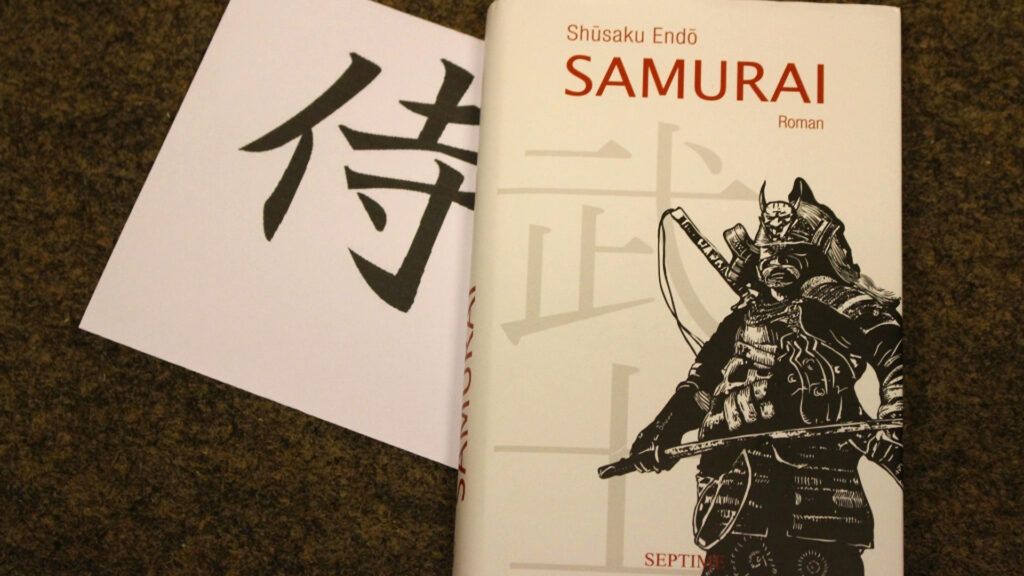
“The Samurai” (1980) by Shusaku Endo is a fascinating work that tells the story of a young samurai named Hasekura living in the 17th century. The book provides an impressive portrayal of Japanese society at that time while also shedding light on the tensions between traditional Japanese values and the emerging Christianity spread by Portuguese missionaries.
The plot of “The Samurai” follows Hasekura, a brave and loyal samurai, who is sent on a dangerous mission to Europe by his lord, the Daimyo Date Masamune. There, he is tasked with forging political alliances for Japan while also learning about Christianity, which was prevalent in Europe at the time.
During his journey to Europe, Hasekura experiences a series of challenges and encounters that challenge his understanding of faith, honor, and identity. He is confronted with the diversity of European cultures and faces the question of how to reconcile his own traditional values with the foreign influences.
Particularly fascinating is the way Endo portrays Hasekura’s inner turmoil, torn between his loyalty to his lord and his own moral convictions. Upon returning to Japan, he must face the consequences of his decisions and find his place in a changing society.
“The Samurai” is a masterfully written work that not only offers a gripping story but also provides profound insights into human nature, the quest for identity, and the conflict between tradition and change in a shifting world.
My Personal Conclusion:
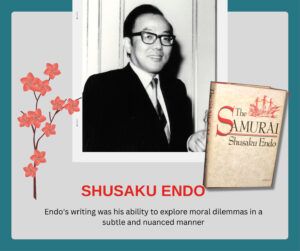
For me Shusaku Endo was undoubtedly one of the most influential and fascinating writers of the 20th century. His life and work are characterized by a deep human sensitivity and a unique ability to explore the complex facets of human existence. In this conclusion, I aim to provide a comprehensive overview of Endo’s life, his most significant works, and his impact on the world of literature.
Born on March 27, 1923, in Tokyo, Japan, Endo grew up during a time of great social and political upheaval. His early childhood was marked by health issues and a delicate constitution that troubled him throughout his life. These experiences shaped his understanding of human vulnerability and the themes of suffering and illness that appear in many of his works.
Endo’s literary career began in the early 1950s when he studied at the University of Lyon in France and started publishing his first novels. His style was influenced by a blend of Western education and Japanese sensibility, giving him a unique perspective on the world. Endo was a Catholic in predominantly non-Christian Japan, and his faith played a central role in his life and writing. This tension between Japan’s cultural traditions and the Christian faith was a recurring theme in his work.
One of the most outstanding features of Endo’s writing was his ability to explore moral dilemmas in a subtle and nuanced manner. In works like “Silence” and “The Sea and Poison,” he posed difficult questions about the nature of evil, human responsibility, and the search for spiritual fulfillment. Endo was not a writer who offered simple answers but one who encouraged his readers to grapple with life’s deepest questions.
“Silence” remains perhaps Endo’s most famous work and a milestone in world literature. The novel tells the story of Portuguese Jesuits who travel to Japan in the 17th century to spread Christianity and face brutal persecution. Amidst the suffering and the silence of God experienced by his characters, Endo explores the limits of faith and the nature of God’s silence in the face of human suffering.
Another significant work is “The Samurai,” which tells the story of a young samurai in the 17th century who is sent to Europe and confronts the conflicts between his traditional Japanese culture and the emerging Christianity. This novel not only offers a gripping plot but also provides profound insights into the cultural and religious diversity of the world.
Endo also wrote a variety of essays exploring themes such as the influence of Christianity on Japanese culture and the challenges of cultural identity. His reflections were characterized by a deep humanity and a respect for the diversity of human experience.
As one of the leading writers of modern Japan, Endo left a lasting legacy in world literature. His work continues to resonate with people around the world, inspiring them to contemplate life’s deepest questions. Shusaku Endo will be remembered not only as an outstanding writer but also as a wise and empathetic thinker who enriched humanity through his art.

